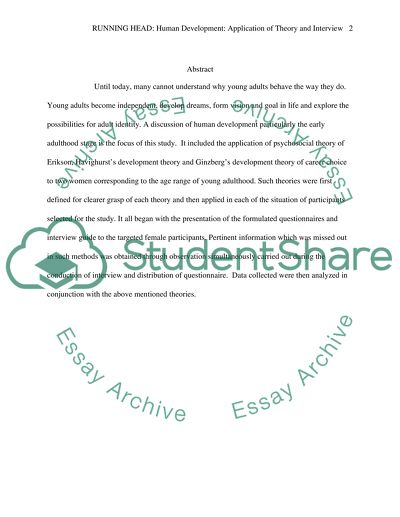Cite this document
(“Human Development ( Interview ) Essay Example | Topics and Well Written Essays - 1500 words”, n.d.)
Retrieved from https://studentshare.org/psychology/1423421-human-development-interview-
Retrieved from https://studentshare.org/psychology/1423421-human-development-interview-
(Human Development ( Interview ) Essay Example | Topics and Well Written Essays - 1500 Words)
https://studentshare.org/psychology/1423421-human-development-interview-.
https://studentshare.org/psychology/1423421-human-development-interview-.
“Human Development ( Interview ) Essay Example | Topics and Well Written Essays - 1500 Words”, n.d. https://studentshare.org/psychology/1423421-human-development-interview-.


